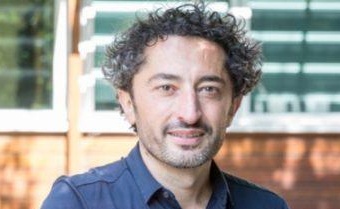The I-CHANGE Dublin Living Lab is part of an EU-funded international initiative to show that behavioural change of single citizens is possible through citizen science initiatives and that this has an impact on their environmental footprint. I-CHANGE is implemented by 16 organisations from 12 countries.
Citizen Science
 The overall concept of I-CHANGE is based on the idea that citizens and civil society have a central role in the definition of environmental protection and climate action, and that their direct involvement is essential to drive a true shift towards more sustainable patterns.
The overall concept of I-CHANGE is based on the idea that citizens and civil society have a central role in the definition of environmental protection and climate action, and that their direct involvement is essential to drive a true shift towards more sustainable patterns.
I-CHANGE Dublin Living Lab is led by Francesco Pilla, a Professor in UCD School of Architecture, Planning and Environmental Policy. He focuses on empowering local communities with cutting-edge technology and enabling them to act on pressing environmental issues in their local environment.
The Dublin Living Lab aims to reduce traffic and air pollution at school gates. In collaboration with the Smart Dublin programme, UCD is co-developing activities with schoolchildren to reduce the number of cars outside schools. The goal is to increase active travel numbers (pedestrians and cyclists), with children acting as ambassadors of change for more sustainable, eco-friendly behaviours. As part of the project, UCD is giving automatic traffic counters and air quality monitors to the schools involved, these tools will monitor how effective the activities are.
The Project
Traffic and transport infrastructure are well-known problems in Dublin. In 2019 a global survey ranked Dublin as the 6th most congested city in Europe and the 14th most congested city in the world. A previous research report suggested that in 2018 Dublin commuters spent a total of 246 hours (or more than 10 full days) in their cars. Emissions from traffic, and in particular from stop-and-go traffic in congested conditions, are a major source of air pollution.
Traffic-related air pollution is a known health risk, and children are especially vulnerable as their lungs are still growing. In addition, high traffic intensities of motorised vehicles increase the risk of collisions and accidents, and road safety is a particular concern in school areas.
Therefore, encouraging active travel around schools has many benefits. It reduces motorised traffic, which improves air quality and road safety. It promotes exercise, which improves health. It also reduces greenhouse gas emissions, which contributes to positive climate action.
Through I-Change Living Labs, Prof. Pilla works with schools and families to achieve this. The traffic counters supplied through this programme will count the number of cars, bikes, and pedestrians in the road, while the air quality monitors will measure particulate matter in the air.
The data from both monitors will be publicly available via open access websites. The traffic counter will record the day to day changes in cars and active travel, which will show how successful these activities are. In addition, the data from the air quality monitor will show how these changes translate into levels of particulate matter pollution.
Find out more and get involved with the I-CHANGE Living Lab here.